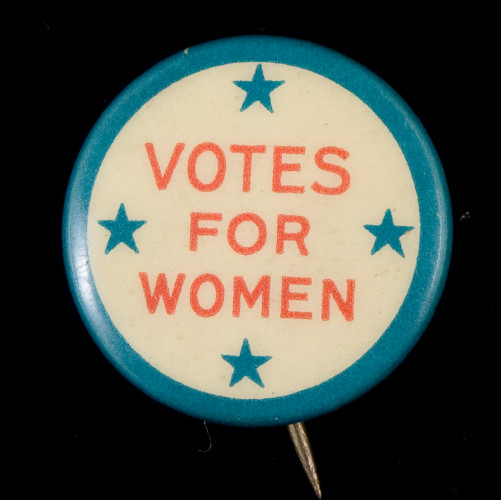
On November 4, 1872 Susan B. Anthony and a group of women from Monroe County, New York asserted what they believed to be their "citizen's right to vote" and cast their ballots in the Presidential election. Their action represented the culmination of thirty years of suffrage activism. Three days later Anthony was tried and would be convicted of illegally voting.
The campaign for woman's rights began with a convention in July 1848, when women and men gathered in Seneca Falls, New York. Throughout the course of their proceedings they articulated what many had believed for decades, if not centuries: The history of mankind is a history of repeated injuries and usurpations on the part of man toward woman, having in direct object the establishment of an absolute tyranny over her.
Over the course of the two day convention, the delegates drafted a Declaration of Sentiments, which outlined the demands of their fledging woman's rights movement. In the months following the convention, activists began to argue for their right to vote and employed the phrase "no taxation without representation," which had served as a rallying cry during the colonial period.
Prior to the American Revolution, colonists argued against the notion of virtual representation. Rather than be represented in Parliament by proxies stationed in the colonies, John Adams and others asserted the belief that those colonists who had the obligation to pay taxes, thereby had the right to vote. The idea of virtual representation did not result in universal suffrage for all former colonists after the American Revolutionary War. Rather, the new government granted the right to vote to white men who owned property. The requirements for white, male suffrage evolved during the early nineteenth century and by the 1840s all white men had earned the right to vote.
During the ante-bellum period woman's rights activists focused their arguments around the familiar idea of virtual representation. Many refused to pay taxes so long as they remained virtually represented in their government. Susan B. Anthony and others argued that the government's taxation of women signaled an obligation for women to participate in government by voting. Historian Linda Kerber has argued race and gender began to replace class as the marker for granting suffrage in the decades leading up to the Civil War.
With the surrender of General Lee in 1865, Congressmen debated the question of citizenship and the place of recently emancipated slaves in American society. Ratified in 1868, the language of the Fourteenth Amendment declared "All persons born or naturalized in the United States, and subject to the jurisdiction thereof, are citizens of the United States and of the States wherein they reside. No State shall make or enforce any law which shall abridge the privileges or immunities of citizens in the United States." Susan B. Anthony began to argue that for those born in the United States- men and women- all were citizens and thereby, all had citizens' rights, including suffrage. The Presidential election of 1872 presented Anthony with the opportunity to test the legality of her argument.


